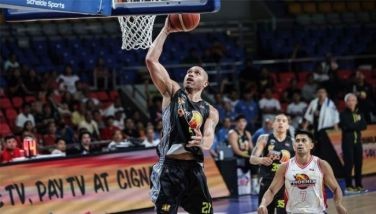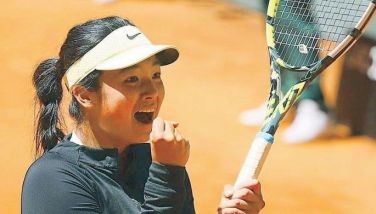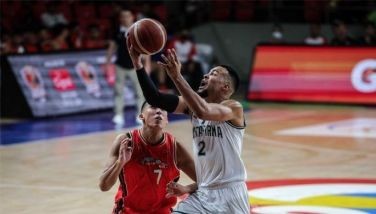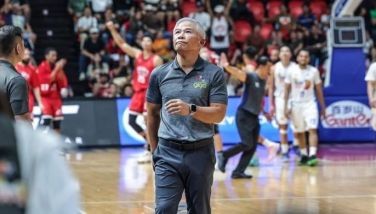Time for a review
The Philippine Sports Commission is initiating a review of all the sports resources that currently exist in the country, and is likewise gathering reports on how each national sports association (NSA) has been spending government resources and creating training programs for national athletes. The government sports agency’s management has been spending its first few weeks in office gathering data to properly learn what is needed to streamline and make processes more fluid, and how to give our athletes a better chance in future international competitions, even before the national athletes flew off to the Olympic Games in Brazil. It will be a somewhat tedious process, but necessary to enlighten the new board on which direction they should head.
The PSC board decided not to go to the Rio Olympics for a few reasons. One, they didn’t see the need to waste government funds with no clear purpose for them to be there. The Olympic Games is a private affair, and the country is fully represented by the Philippine Olympic Committee, which is responsible for taking care of the needs of the athletes and handling any protests or clarifications of how individual events are managed and review results. The country is further represented by the pertinent NSA heads in Rio. Secondly, all necessary preparations had already been made. The presence of the new board there would not have added anything, anyway. Third, Ramirez and company did not want to appear to take credit for whatever accomplishments Philippine athletes would record, as they were trained during the previous administration. Credit should go where it is due. Even though the PSC board represents the highest government sports agency and is under the Office of the President, it was the previous board that oversaw the current Olympic regimen.
Having said that, the PSC is also looking at how tiny nations like Singapore and Fiji, with far smaller populations than the Philippines, have managed to outstrip the country’s performance in the Olympic Games. That a Singaporean athlete can beat the formidable Michael Phelps in the pool, and the Philippines has more resources than the tiny city-state, is considered a slap in the face for Filipino athletes.
One of the things PSC chair Butch Ramirez is looking into is the current state and inventory of all sports facilities used by national athletes. Unfortunately, the PSC itself does not own any sports facilities. PhilSports and Teacher’s Camp in Baguio belong to the Department of Education (formerly the Department of Education, Culture and Sports or DECS). Other facilities are owned by local and provincial governments. It is only Rizal Memorial Sports Complex (RMSC) that is owned by the national government, under the stewardship of the city of Manila. Ramirez is also drafting a plan to place the athletes of certain sports in the provinces where those sports are strongest. This will not only consolidate training efforts per sport, but also remove many athletes from dense urban areas where traffic, pollution and distractions may be counterproductive. There are already several usable private and public multi-sport facilities in Laguna, Pangasinan, Tarlac and Cebu, among others, most of them far away from urban sprawl.
The PSC is more inclined to renovate and upgrade the current facilities at RMSC instead of building a new, more expensive one which would take time and money that the government can better allocate elsewhere. At Rizal Memorial, they already have the space, and can build upward if need be, at a fraction of the cost. Previous efforts to build a new national training center in Clark, Pampanga did not push through, also meaning a huge savings for the agency. Ramirez has already met with three senators and is meeting more this week. So far, legislators from both chambers have shown their full support for a vastly improved, no-nonsense sports program that leaves no room for compromise or cronyism. The new mandate is simple: no liquidation, no performance, no funding. Everyone has to play by the rules. Sounds trite, but the unflinching implementation will definitely be refreshing.
With more teeth, the PSC will also have more funds. The strong new relationship with Pagcor will finally correct an error that has been enforced for over a quarter of a century, practically the entire existence of the PSC itself. If calculations are correct, it is estimated that the commission will receive roughly P200 million monthly from Pagcor, enough to start fixing some of the aged infrastructure along Vito Cruz that has stood since before the Philippine became a free republic. It may take time, but the current board has six years to make things happen. And the athletes will be encouraged by the sight of new money being plowed into their homes and training centers. They will see that the government truly cares for them.
Naturally, a lot of the progress will depend on the cooperation of the various NSAs, some of whom are still prone to politicking and fence-sitting. Since 1990, the commission can never say that it has gotten complete compliance from every federation at any one time. But that will soon change. The PSC has been given the mandate by a determined Pres. Duterte to clean up the system and make sure the country progresses from being an also-ran to a leader in sports not just in Southeast Asia, but in the continent, at least. Through sheer force of will, the government has already caused change in other critical areas, most notably against crime and the use of prohibited drugs. So why can’t things change in sports? Many government officials are breathing a sigh of relief, saying their job has been made easier simply because they are following clear, direct orders: clean house. Of course, there will be some NSAs who will obstinately try to do things the way they always have, and cry “government intervention.” But for once, that will not fly. There is a growing consolidation of power behind the PSC, from the Office of the President to the Senate to the House of Representatives. The commission is also getting unprecedented cooperation from other agencies. So now would not be a good time to keep acting like an old boys’ club.
The time of patronage politics in sports is under serious threat. The PSC’s silence in the mainstream media should be alarming to non-cooperative federations and recalcitrant PSC employees. It means that work is being done silently, and therefore quickly. It means the PSC is doing its homework and casting a light on what has been going on the past few years, to reveal both good and bad developments. With the executive and legislative branches of government taking past embarrassments more seriously and rallying behind the PSC, we may finally see the results we have thrown billions of pesos behind.
* * *
It almost begs the use of expletives and the hackneyed “It’s about time.”
- Latest
- Trending































